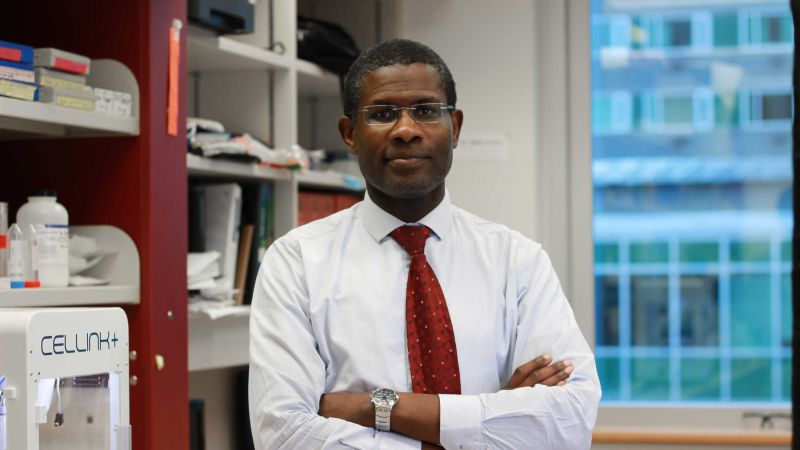
Author: Tom Ndekezi
25 May 2021
Meet ELITE is a series where we introduce you to a member of the ELITE Program for Black Youth Steering Council.
The ELITE Program for Black Youth may still be in its first year of operation, but for Co-Director, Professor Adetola Adesida, the focus on mentorship that underpins the program has been a constant theme during his more than 10-year career.
Born and raised in the UK, Dr. Adesida studied at the University of Essex, before completing a PhD in Pharmacy at the University of Manchester. Those formative experiences would set him on a trajectory that went through the Netherlands, the University Hospital of Basel, Harvard University, and eventually the University of Alberta’s Department of Surgery. It’s also where he first experienced the power of mentorship, firsthand.
“The reason why mentorship is so important for me is because that's how I was trained in the UK,” Dr. Adesida tells me.
He recounts the impact it had on him as a young academic to have his postdoctoral supervisor encourage him to take the lead on talks and presentations, as well as introduce him to industry leaders. He also remembers the little things, like a kind word or a lunch date honoured.
Decades later, Dr. Adesida is implementing those same principles in his own lab, leading a team of PhDs, clinical students, undergrads, and the occasional high school student.
“I've been training high school students in my lab since late 2009,” Dr. Adesida says. “They usually come in as volunteers and do things for me like paperwork, and through that they get exposure to the things that are going on in the lab.”
It’s a small gesture that goes a long way, and over the years, Dr. Adesida has watched those curious high school students go from filing papers in his lab to completing residencies and becoming practicing surgeons.
With regard to the best way to facilitate that growth, Dr. Adesida is a strong believer in playing to students’ strengths and interests. Luckily for them, there’s no shortage of research topics in the Adesida lab—whether students are interested in the mechanics of tissue engineering, the science of cell specialization, or cutting edge ‘bioprinting’ research looking at better ways to create functional cartilage, Dr. Adesida always makes sure to save some room on the lab bench for the researchers of tomorrow.
“If you go to the lab, sometimes you will see my students there at nine or 10 o'clock at night, and they're still working. They're so passionate about what they do,” Dr. Adesida says. “I give them that academic freedom so as to make sure that their passion is directed in the space. If it's an engineering student, I give them a project that requires a lot of engineering. If the person comes from a biology space, I put them in a project that is more biology-oriented so they can really shine and build upon the fundamentals they’ve learned.
“Why do I do that? Because of the passion. I put students in those things that they are passionate about so that when they sleep at night, they're excited to come in the morning to work on that project.”
Now serving as the ELITE Program for Black Youth’s Co-Director — as well as hosting three interns in his lab over the summer — Dr. Adesida is looking to bring that same mix of mentorship and modelling to Black youth interested in science, technology, engineering, and mathematics.
“When a person like me is involved in the ELITE Program, Black youth have the opportunity to have access to those role models,” Dr. Adesida says. “But I think what the ELITE Program really does is create an opportunity where Black youth can not only see those opportunities, but they can also experience them. And that's a big difference.”

